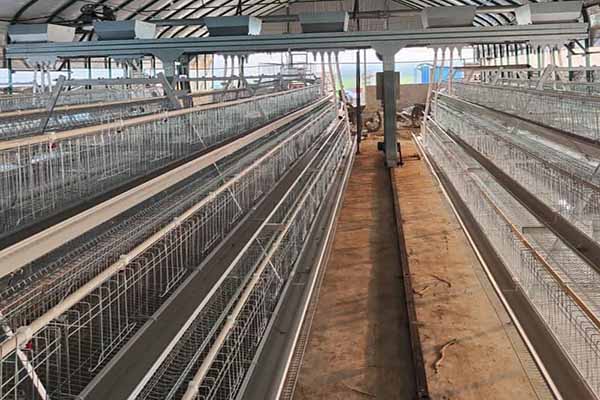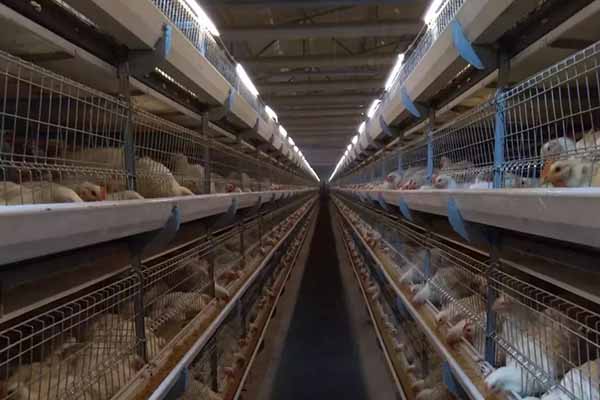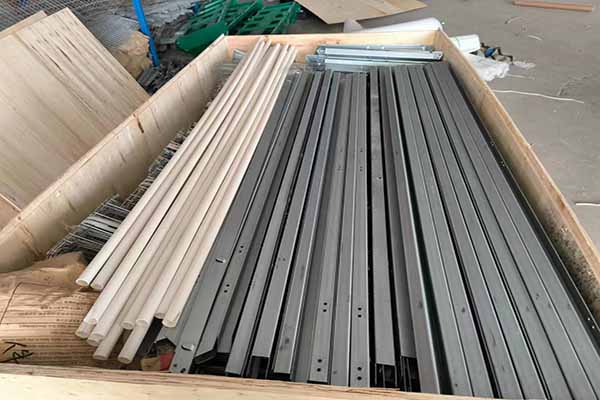A Comprehensive Guide to Automatic Broiler Cage Systems in South Africa
Time : 2025-07-01
South Africa, with its diverse agricultural landscape, has been increasingly focusing on modernizing its poultry industry. One of the key areas of innovation is the adoption of automatic broiler cage systems. This article delves into the intricacies of these systems, their benefits, and their impact on the South African poultry industry.
Understanding Automatic Broiler Cage Systems
Automatic broiler cage systems are designed to provide an optimal environment for broiler chickens, ensuring their health, welfare, and productivity. These systems are typically composed of several components, each playing a crucial role in the overall efficiency of the operation.
Key Components of Automatic Broiler Cage Systems
- Cage Design: The design of the cage is crucial for the comfort and safety of the chickens. It should allow for easy access for feed and water, as well as waste removal.
- Climate Control: Maintaining the right temperature and humidity is essential for the well-being of broiler chickens. Automatic systems include ventilation and heating/cooling mechanisms to ensure optimal conditions.
- Feed and Water Systems: Automated feeding and watering systems provide chickens with consistent access to food and water, reducing the risk of malnutrition and dehydration.
- Monitoring and Management: Advanced monitoring systems allow for real-time tracking of chicken health, performance, and environmental conditions. This data can be used to make informed decisions and adjustments.
The Advantages of Automatic Broiler Cage Systems
Implementing automatic broiler cage systems in South Africa offers several significant advantages, both for the industry and the environment.
Increased Efficiency and Productivity
These systems streamline the farming process, reducing labor requirements and increasing overall productivity. Automated feeding and watering systems ensure that chickens receive the necessary nutrients without the need for constant human supervision.
Improved Animal Welfare
Automatic broiler cage systems provide a controlled environment that enhances the welfare of the chickens. The right temperature, humidity, and space for movement contribute to their health and well-being.
Cost-Effectiveness
While the initial investment in automatic systems may be high, the long-term savings can be substantial. Reduced labor costs, lower feed consumption, and improved chicken performance all contribute to a more cost-effective operation.
The South African Poultry Industry’s Adoption of Automatic Broiler Cage Systems
The South African poultry industry has been gradually embracing automatic broiler cage systems. This shift is driven by several factors, including the need for increased efficiency, improved animal welfare standards, and the desire to compete on a global scale.
Government Support and Regulations
The South African government has been instrumental in promoting the adoption of these systems through various initiatives and regulations. This support has helped to create a conducive environment for farmers to invest in modern technology.
Industry Collaboration
The poultry industry in South Africa has been collaborative in its efforts to adopt automatic broiler cage systems. Associations and organizations have been at the forefront of providing training, support, and resources to farmers.
Challenges and Considerations
While automatic broiler cage systems offer numerous benefits, there are also challenges and considerations that need to be addressed.

Initial Investment Costs
The high initial cost of setting up automatic systems can be a barrier for some farmers. However, the long-term savings and increased profitability can outweigh these costs.

Technological Knowledge and Training
Effective operation and maintenance of these systems require a certain level of technological knowledge. Providing training and support to farmers is crucial for the successful implementation of these systems.
Environmental Impact
While automatic systems are more efficient and environmentally friendly than traditional methods, it is essential to ensure that their operation does not have a negative impact on the environment. Proper waste management and energy consumption are key factors to consider.

Conclusion
The adoption of automatic broiler cage systems in South Africa represents a significant step towards modernizing the poultry industry. These systems offer a range of benefits, from increased efficiency and productivity to improved animal welfare and cost-effectiveness. While challenges remain, the continued support from the government, industry, and technological advancements will likely see the widespread adoption of these systems in the coming years.











